Teach For Armenia is a two-year leadership development program for graduates and top professionals who speak Armenian and are willing to change not only their lives, but the lives of children across Armenia. After an intensive and rigorous five-week Summer Institute training program, Fellows are placed for two years in communities where teachers are needed. Fellows not only contribute to the development of children's personal growth and academic knowledge, but also to the development of their communities through extracurricular activities and Community Development Projects.
Who are these young people who are not afraid of challenges? Who leave their comfort zones for the greater good, all to inspire children to discover their talents and realize their dreams of inspiring future generations?
Mediamax and Teach For Armenia continue to shed light on the work and life of Fellows serving students in the most underserved communities across Armenia.
In early September 2018, residents of Amberd Village curiously watched Mr. Karapetyan, the new history teacher, make his way to the school with the help of a white stick and his daughter’s hand. Students offered to accompany him and locals suggested giving him a lift, but the teacher continued to walk.
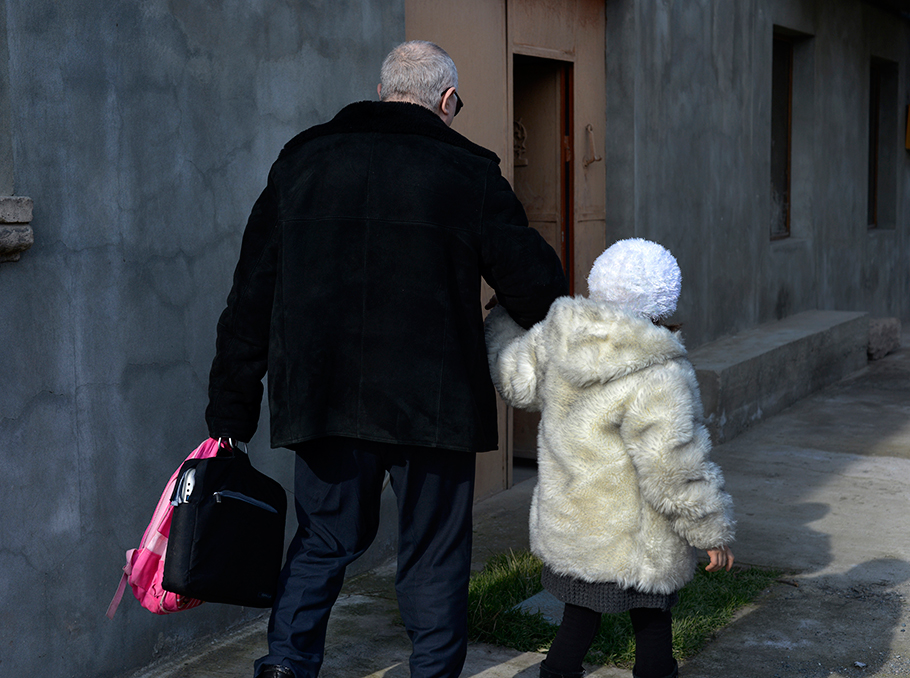
Photo: Vaghinak Ghazaryan/Mediamax
“I no longer attract attention when I’m in the community. I’m happy about it; the people here are used to me, and they don’t see me as unusual,” says Hakob Karapetyan.
The teacher wasn’t born visually impaired; he lost his sight gradually. Mr. Karapetyan studied political science at Yerevan State University, learned massage, and attended accounting courses. At first, being a teacher was not his dream. However, he couldn’t help but hear the complaints about the education system and lack of teachers in village schools. This gave him food for thought.
Even after applying to Teach For Armenia and passing all the stages of selection, Hakob was not sure he would have the opportunity to teach at a school. He was aware of how society usually treats visually-impaired people.
“When Teach For Armenia announced where we would be placed, I expected to hear that they were sorry—that no school had accepted me. When they announced my name and told me, “Armavir Marz, the school in Amberd Village,” I was shocked.
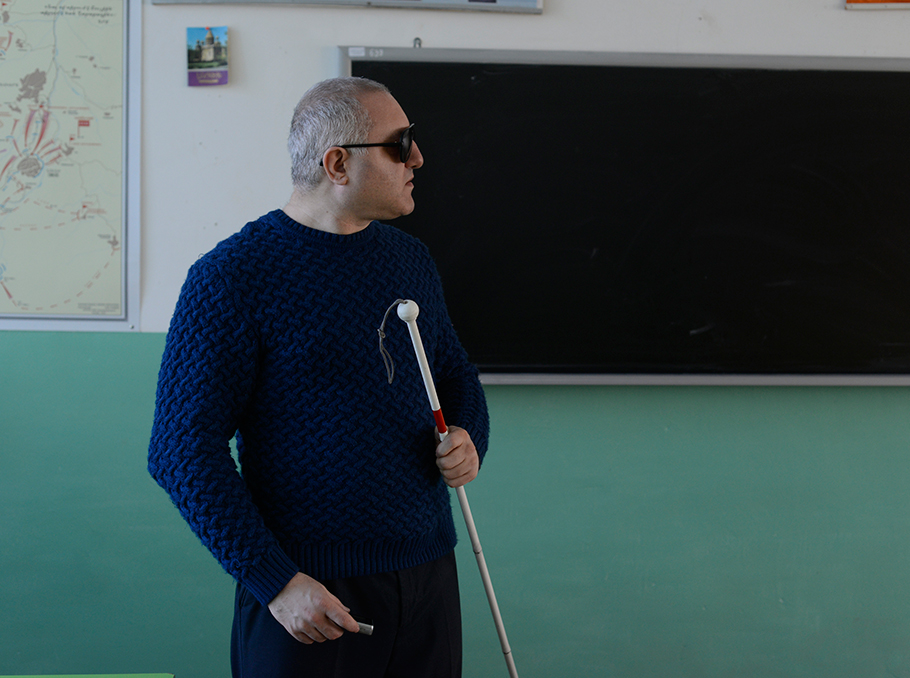
Photo: Vaghinak Ghazaryan/Mediamax
I called the headmaster, and he spoke to me. He was polite, and answered all my questions. Once I hung up, I wondered if they knew of my impairment,” Hakob recalls, laughing.
The headmaster, Zohrab Maghakyan, didn’t contact Teach For Armenia because his school is understaffed—he just wanted to bring in new energy and a fresh approach.
“I thank God for the opportunity to meet this wonderful person—a specialist who really has something to say. He teaches with new methods and a different style. Our children need new and interesting approaches,” he said.
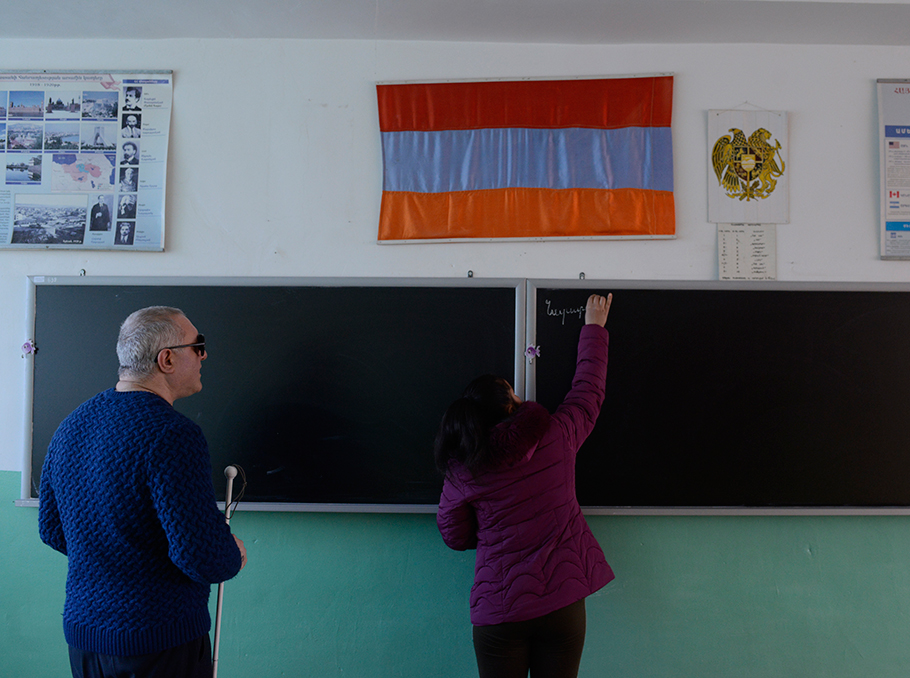
Photo: Vaghinak Ghazaryan/Mediamax
As he waits for the 11th-grade students to arrive at his class, Hakob turns on the recorder and asks a pupil to write the lesson objective on the blackboard. He has prepared new lesson plans to make sure all his students are engaged and grasp the subject.
“I am ready to look for solutions. If something can’t be done now, you need to work on it: find a better way during the next lesson. You cannot just say, “there’s no way,” and give up. It’s the easiest choice, but leads nowhere. I’ve also found solutions for my own teaching challenges: I record the questions at home, and in class I listen to them and dictate to students so they can write them down.
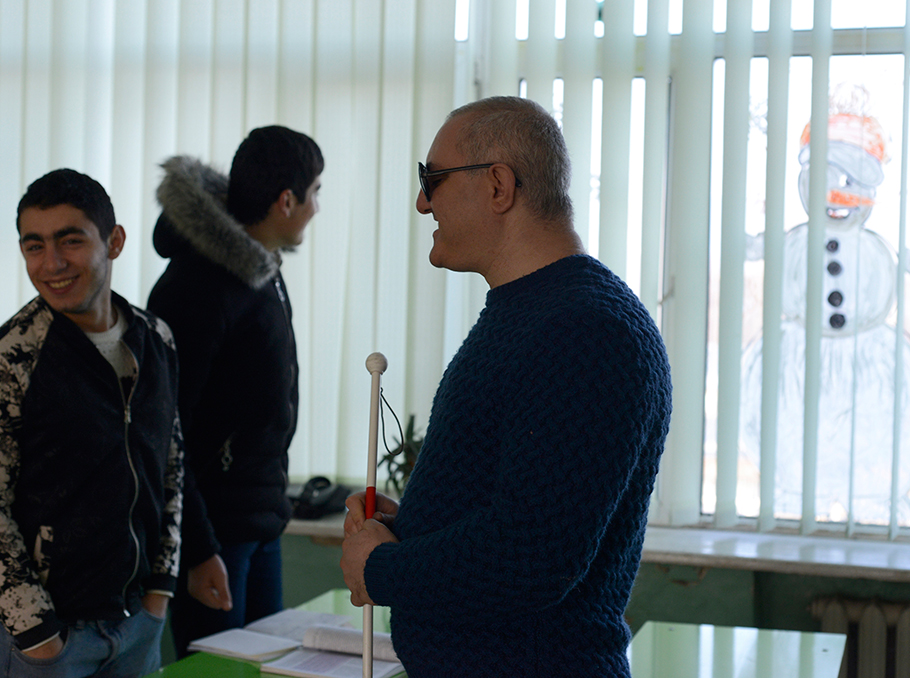
Photo: Vaghinak Ghazaryan/Mediamax
“My wife is my right hand; she helps me with everything. We check subject tests together, and she reads the lessons to me. Sometimes she is busy or not at home, but I can’t go to class unprepared. I have a solution for that, too: I scan the lesson and format it into text using a computer program. My daughter helps me out when I have to make quick notes, jotting them down in her child’s handwriting.
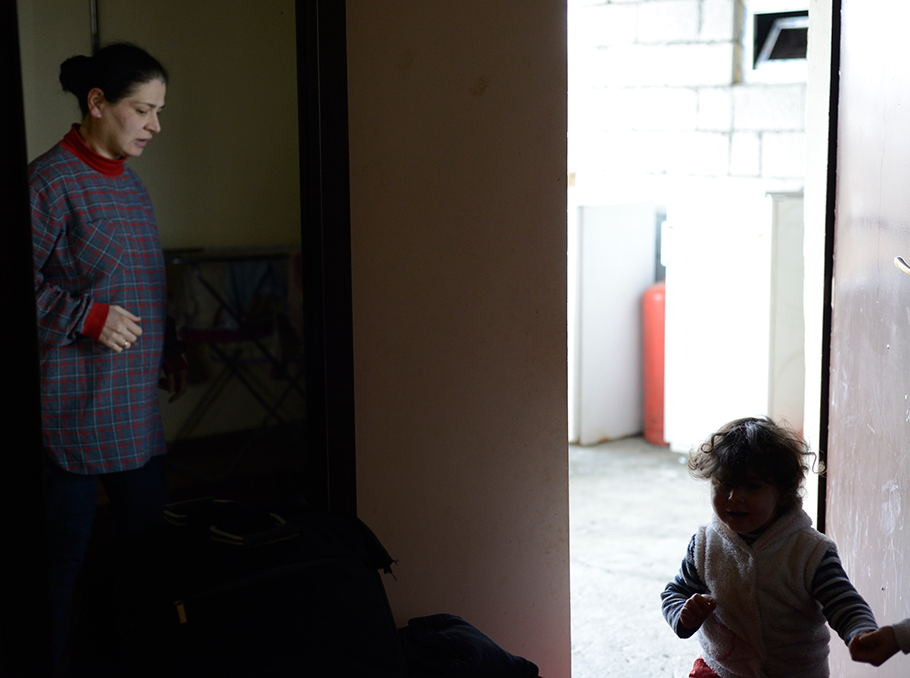
Photo: Vaghinak Ghazaryan/Mediamax
“It might be time-consuming, but for now, this is the solution. What matters is my students learn; everything else is secondary,” says Hakob.
He teaches Armenian Language and Studies as well as World History. To make the subjects memorable and unique, he uses music, radio dramas, and other creative materials. He is already thinking about how his next lessons can be fresh and innovative.
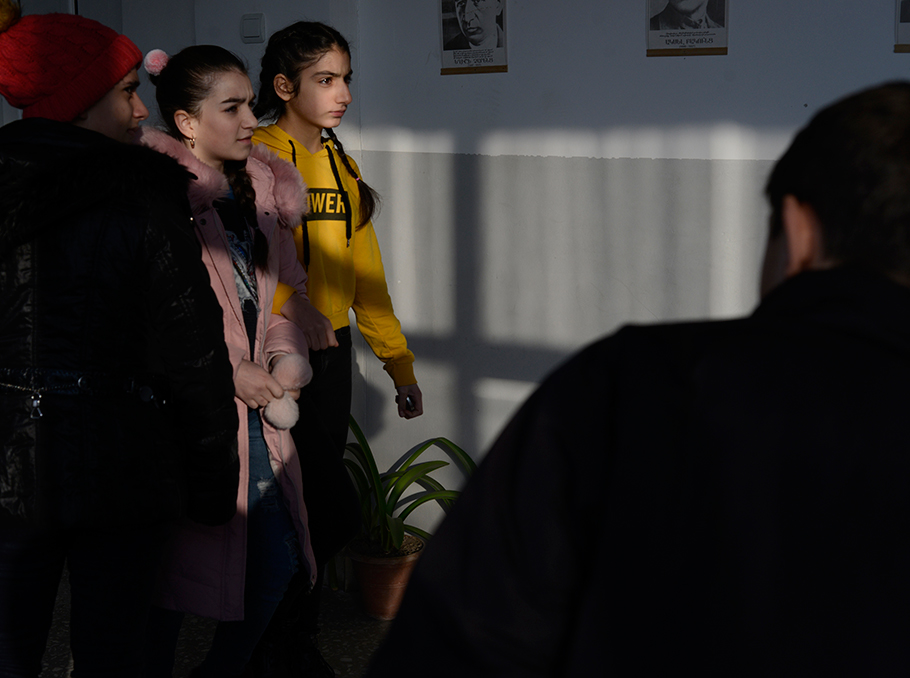
Photo: Vaghinak Ghazaryan/Mediamax
“At first, it was so unusual to see Mr. Karapetyan in school. Now we’re used to him. Many people who can’t see become discouraged. But Mr. Karapetyan is strong-willed, and he inspires us.
“He is always ready to help. He says, ‘You can come to me; call me.’ We help him, too, doing what we can,” say his 11th-grade boys.
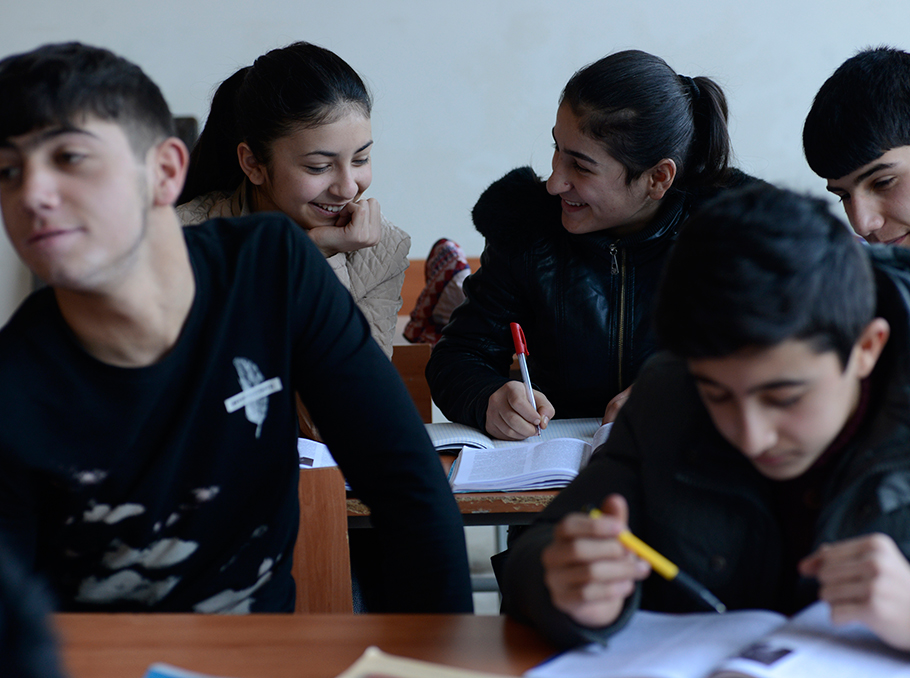
Photo: Vaghinak Ghazaryan/Mediamax
Hakob recalls when he first arrived in early September. His students were waiting for him, uncertain what it would be like to study in his class. “It was something exotic for them,” he says.
Now the whole village knows Mr. Karapetyan, and the students often invite him over for family dinners.
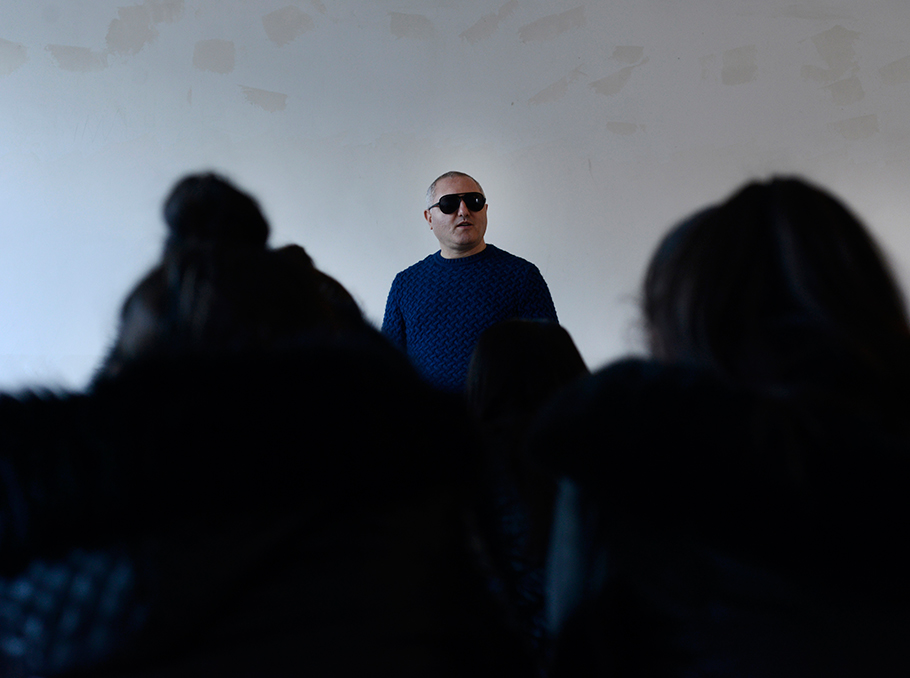
Photo: Vaghinak Ghazaryan/Mediamax
“It was strange for some people that a teacher could be a guest at his students’ homes, but I accept these invitations. When you see that a student isn’t studying, you have to find out why. Family can be the reason. If there is no interest and oversight of the child’s education at home, the teacher can’t do much. ‘Family, education, student’ is a chain that must be maintained. If one link breaks, results become impossible.”
The students also visit Mr. Karapetyan at his home, for extra lessons. For the New Year, they came to congratulate him. Soon they will visit again to receive a prize. Not long ago, Hakob announced a contest. He will award the winning team a film screening and tea at his house.

Photo: Vaghinak Ghazaryan/Mediamax
Hakob has worked at the Amberd School since September 2018. Together with his students, he has several initiatives they’ve already accomplished. For instance, for the “Kind Tuesday” project, 6th-grade students cleaned the area around St. Tovmas Church, and older children collected firewood for a needy family.
“I am the mother of Eric, the naughty one,” one of the parents says to Hakob in the school corridor. “Eric has huge respect for you. I saw him cover your shoulders with his coat while you were collecting the firewood. It really surprised me.”
“There is so much good in children and we need to discover it,” says 36-year-old Hakob. He has learned that children are ready to unite behind an idea and do everything to make it work. They only need the guidance and direction for their enthusiasm and enterprise.
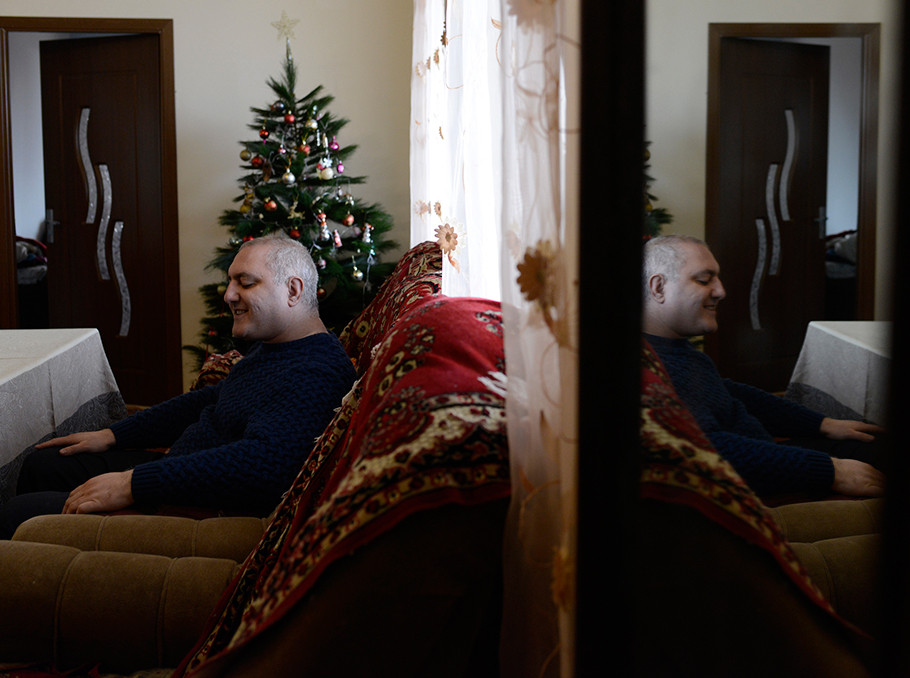
At Hakob’s suggestion, the school will soon have an open-air classroom with the administration’s blessing. They purchased equipment for radio programs. These will focus on school life and will be broadcasted in the school. Hakob’s role in life has evolved from being a parent to now also being a teacher, and this has led to plenty of discoveries.
“We need to change the daily routine of these kids, give them opportunities to choose what their future should be. I feel horrible when I ask a student what they plan to do and they answer “I don’t know,” or “I have no plans.” Before we educate children, we should teach them to dream. A person should be aware there is a world outside of this village. Perhaps, someone wants to learn robotics, but they have no idea they could go to the Tumo Center for Creative Technologies. We must arm our students with different perspectives and information to direct their futures.”
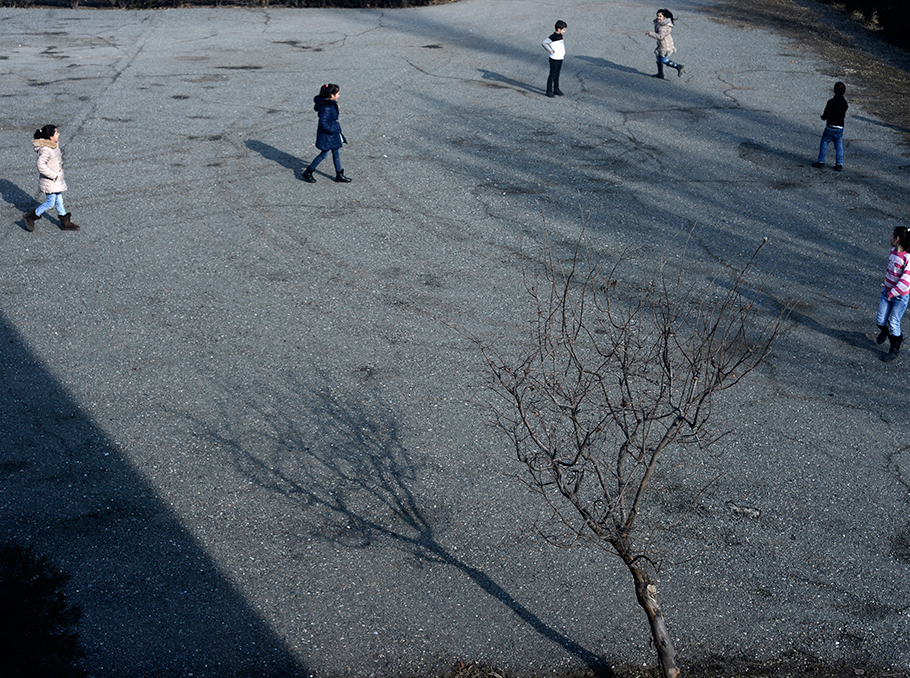
Photo: Vaghinak Ghazaryan/Mediamax
Hakob wants to contribute not only to the Amberd School, but to the education system as a whole. He says the school has opened a broad field of research for him. He is studying the issues in the education systems along with teaching. By the end of his two-year Teach For Armenia Fellowship, Hakob hopes he will not only identify and understand the problems but will have outlined solutions.
“I’m done with the stick now. This is my territory,” he says, putting away his walking stick as he approaches the gate of his house.
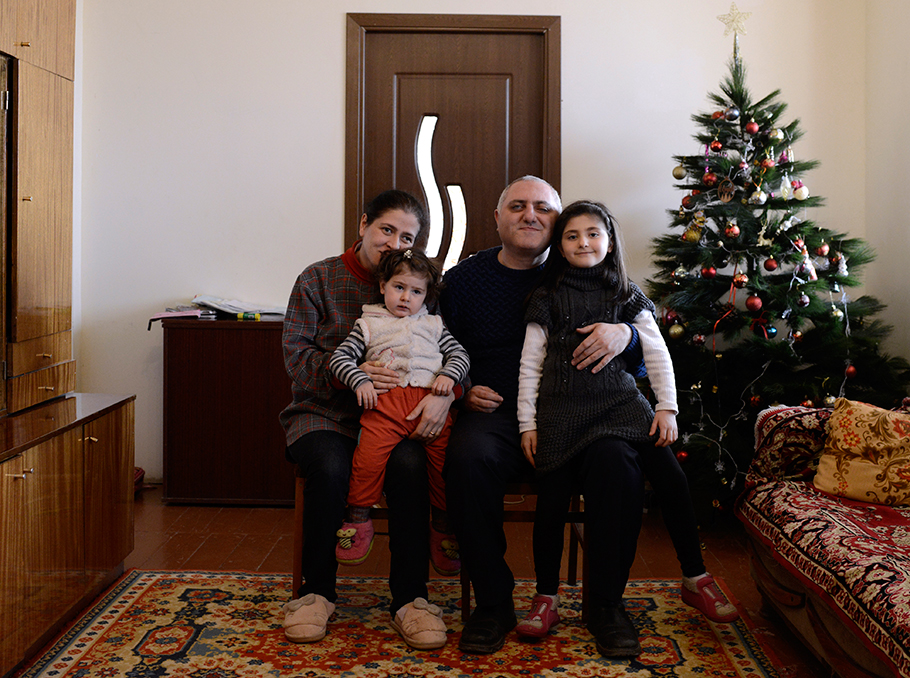
Photo: Vaghinak Ghazaryan/Mediamax
Hakob’s wife Henrietta and two-year-old daughter, Nare, are waiting for him and his elder daughter, Arpi. If their classes end at the same time, they walk home together.
The family moved to Amberd in September 2018. Tackling the issues related to living conditions was a long, difficult process—but they made it. “It was a challenge,” they say. In the spring, the family will welcome another child.
Moving a large family to the countryside to start a new life, a new occupation, in a new community, and with new living conditions… Was it worth it? When asked, Hakob first tries to answer himself, but gives up and calls for Henrietta’s help. Together, they find the right words.
“We decided we would go, wherever I was placed. If you have a purpose, you have to do it. The most important thing is that we did everything with a prayer for God’s guidance. God bless! It couldn’t be any better for us. He gave us the best.”
Lusine Gharibyan
Photos: Vaghinak Ghazaryan (special for Mediamax)
















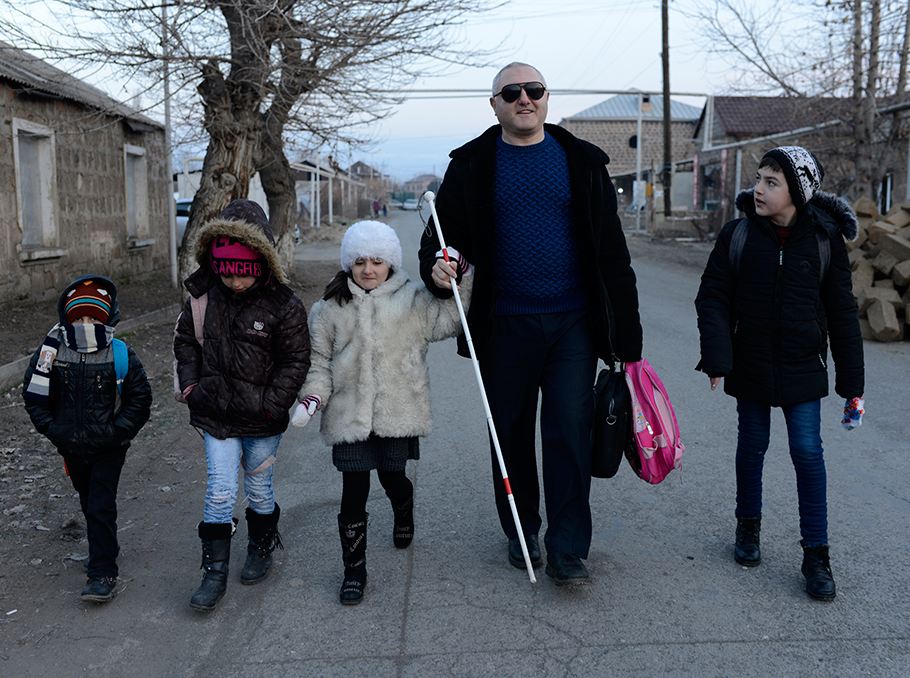
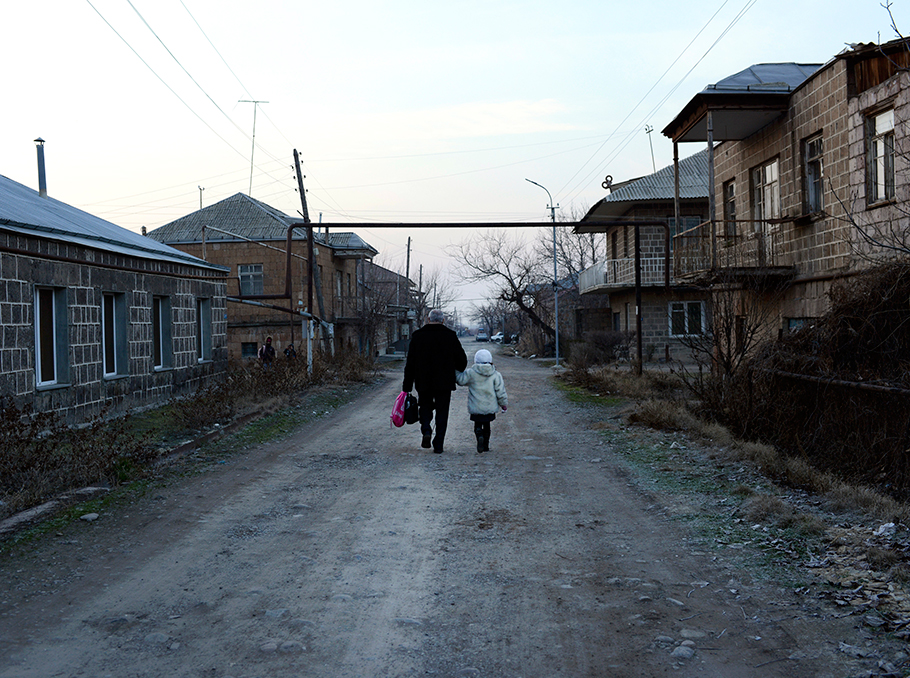

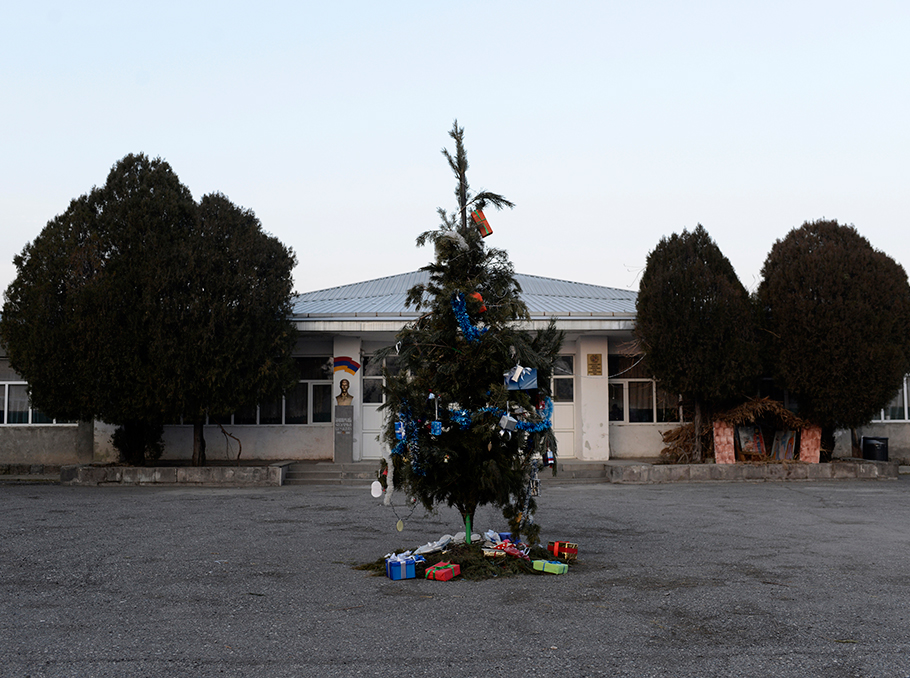
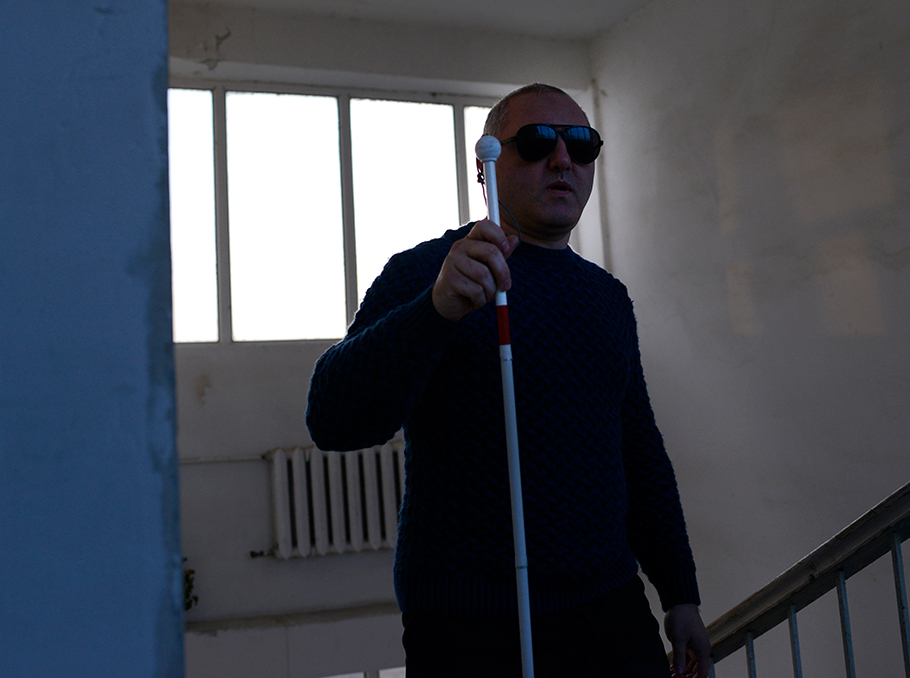

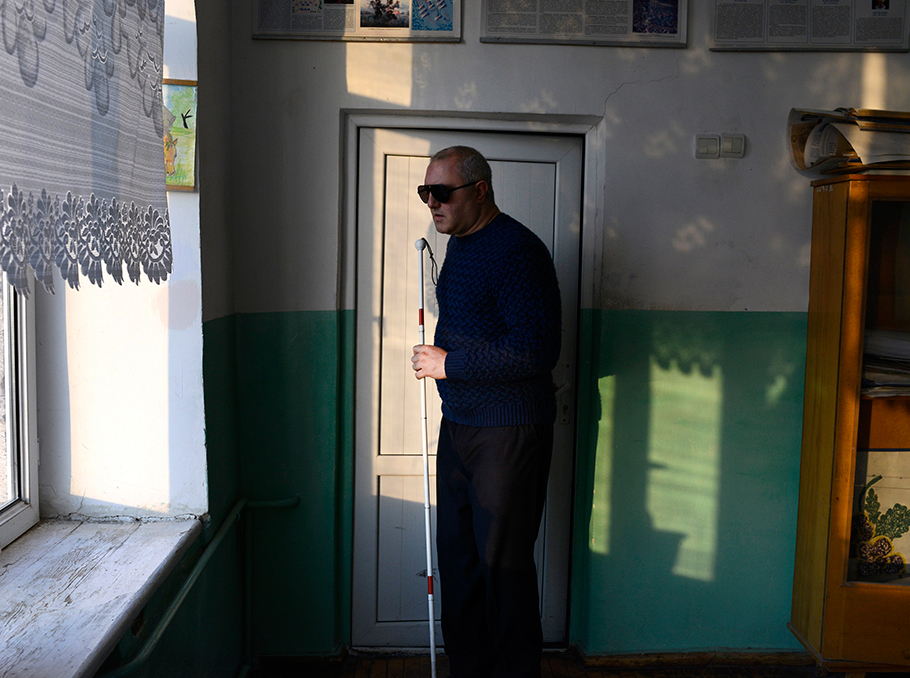

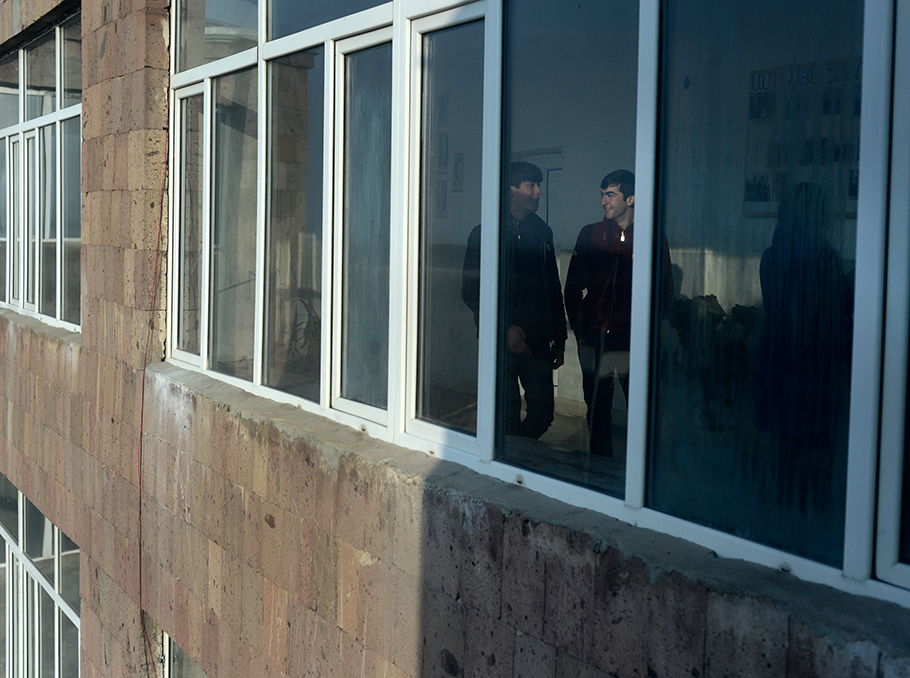
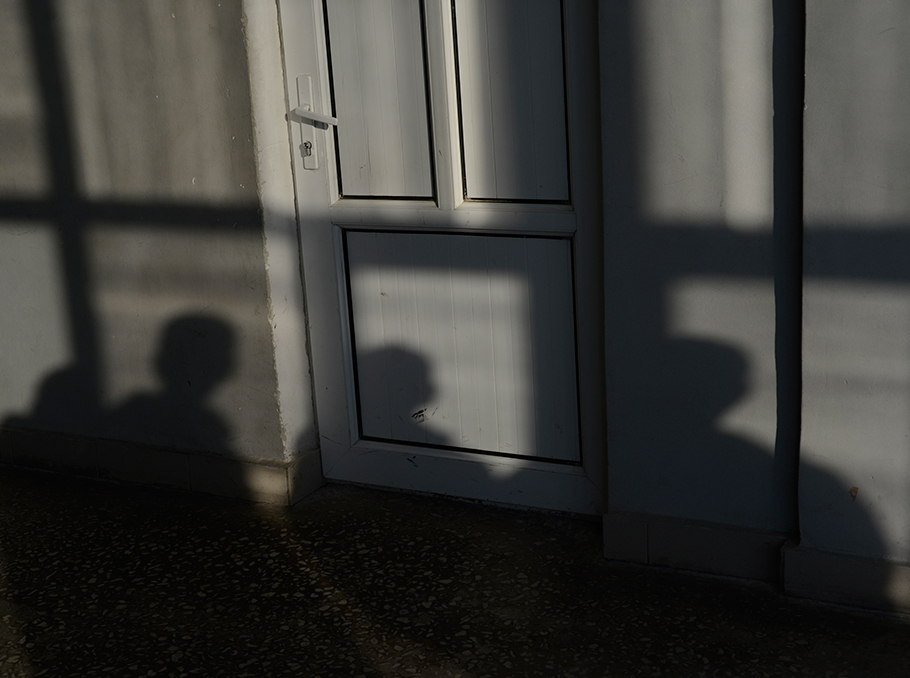
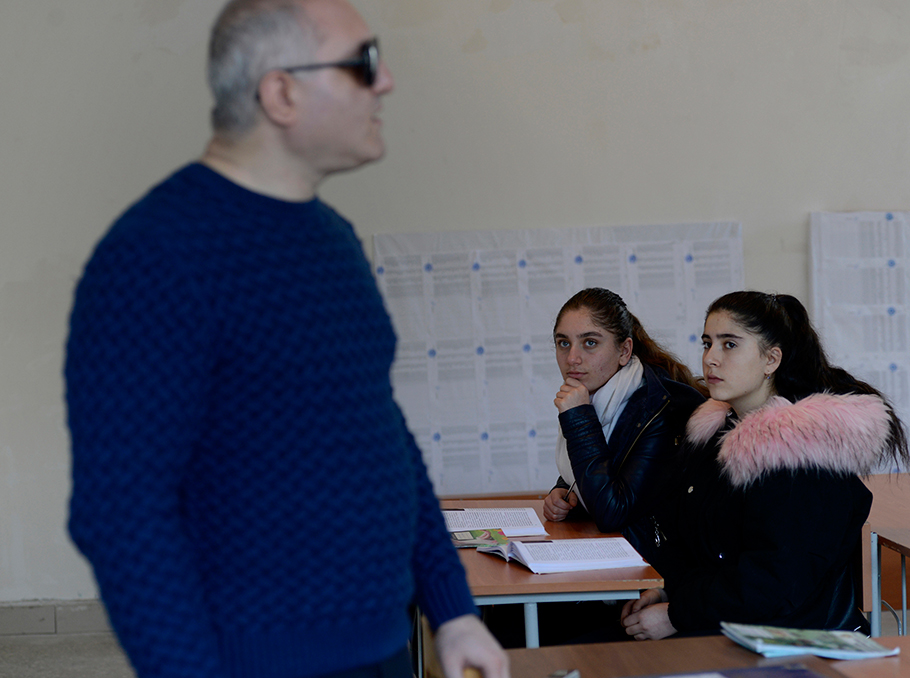
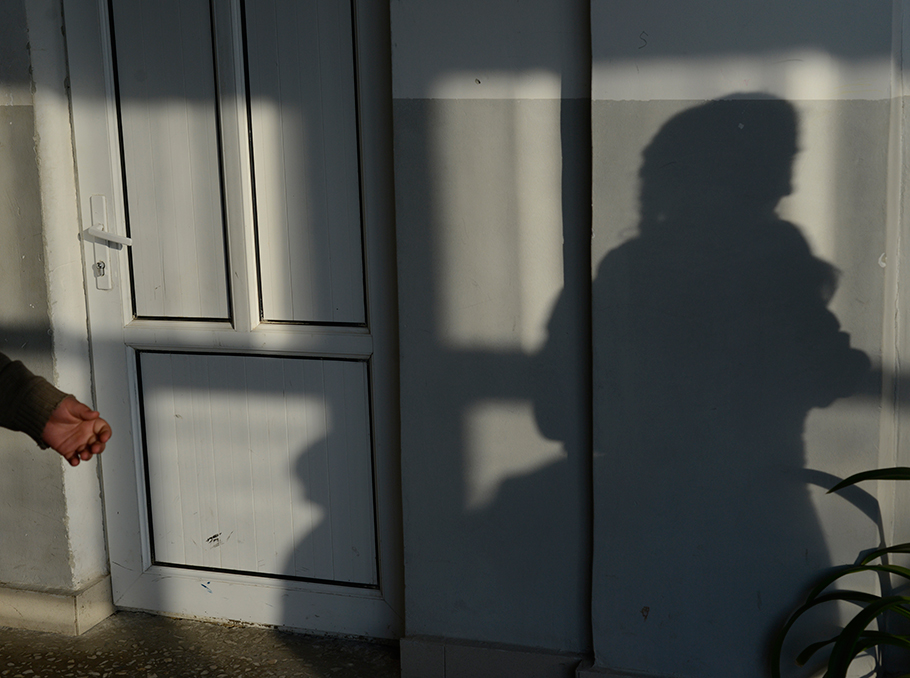
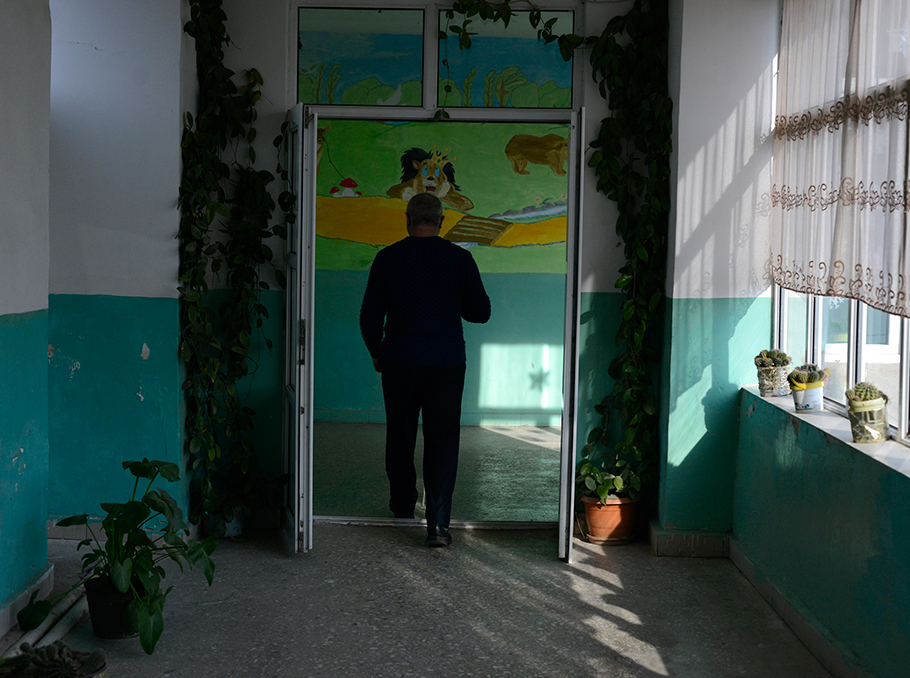
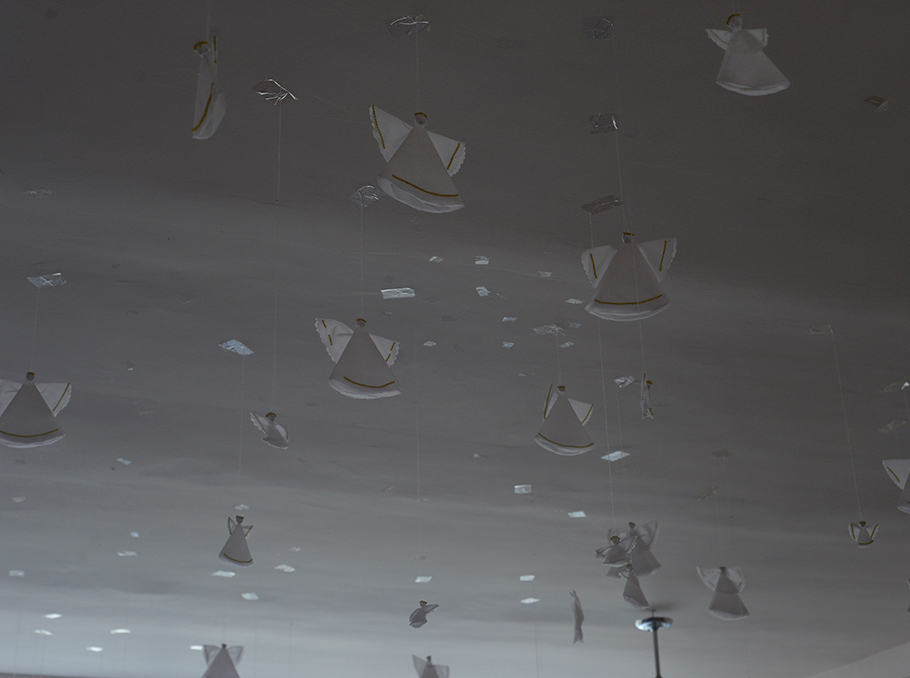

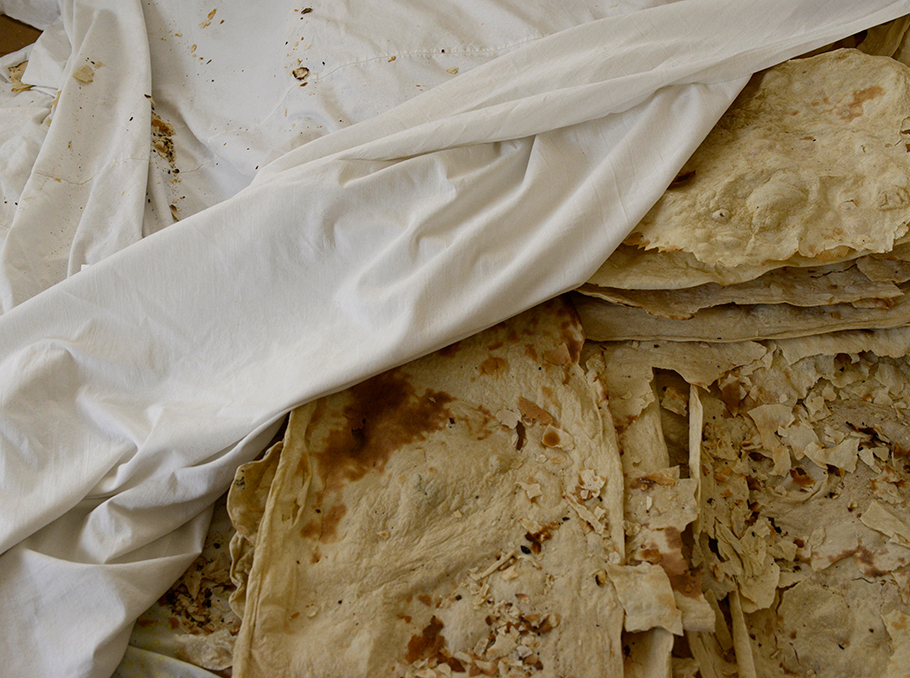
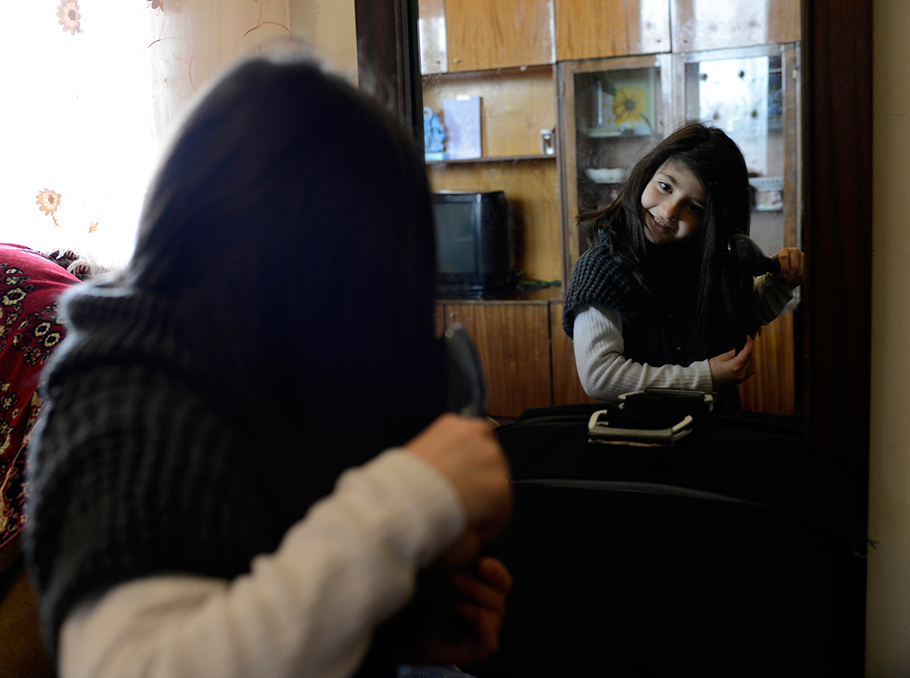
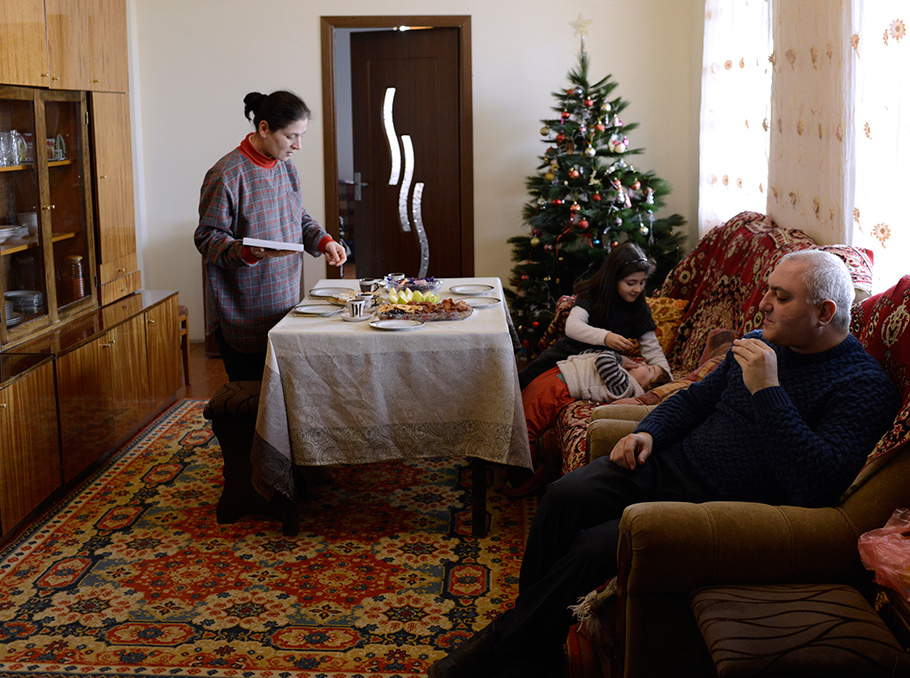
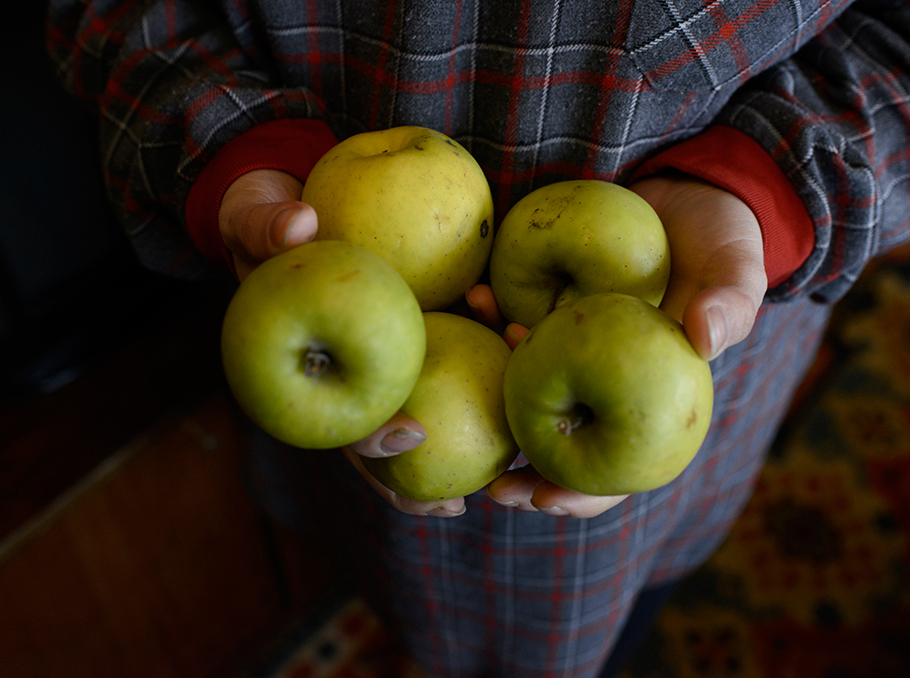
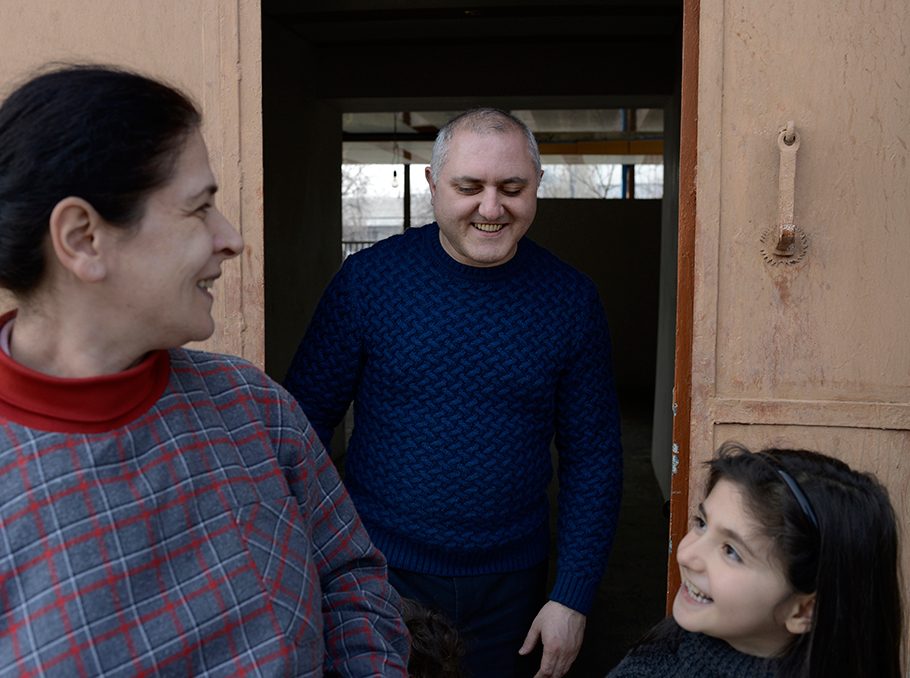
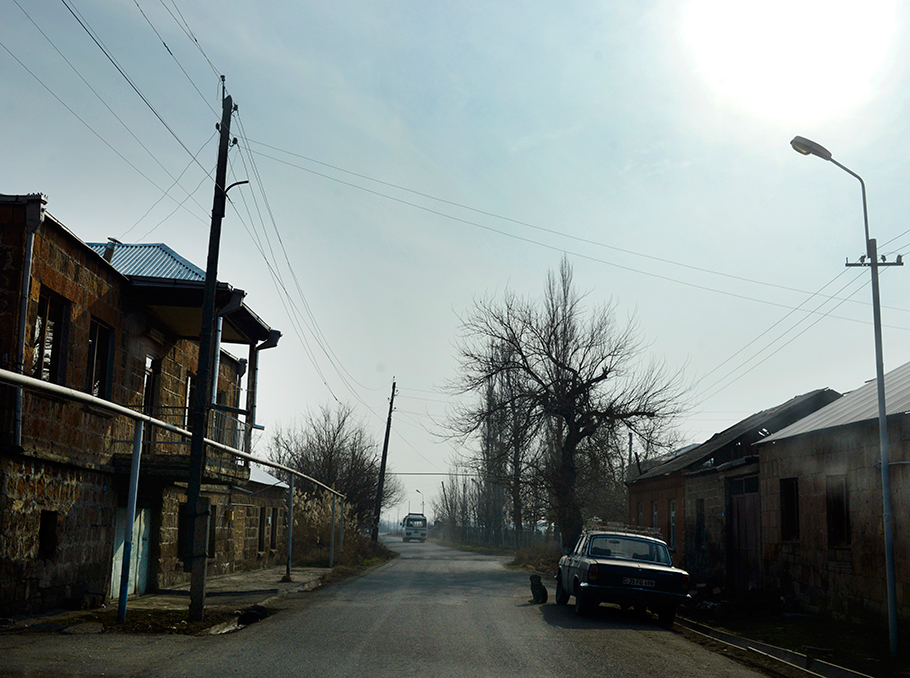
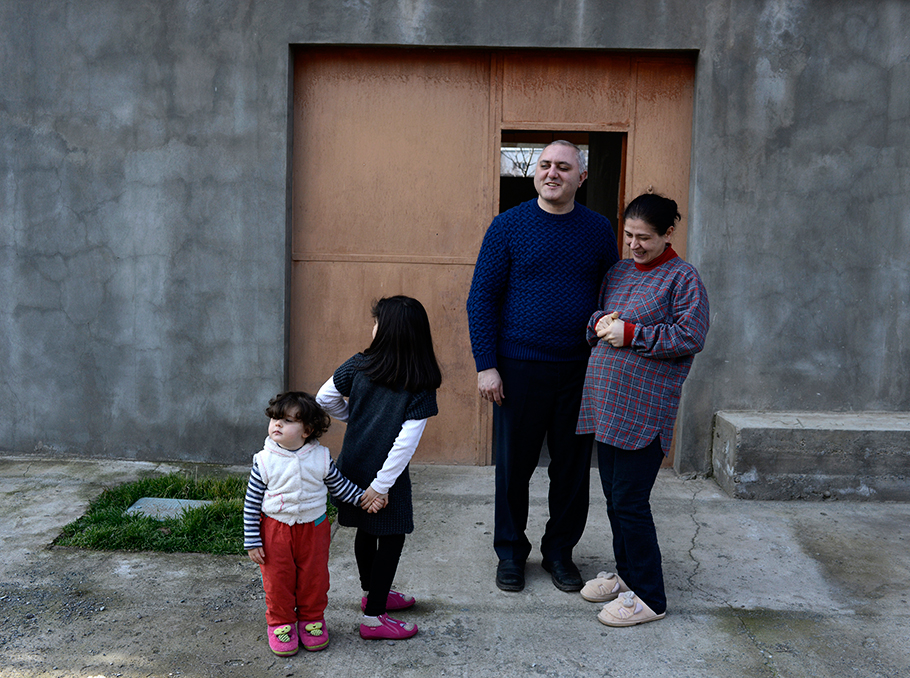

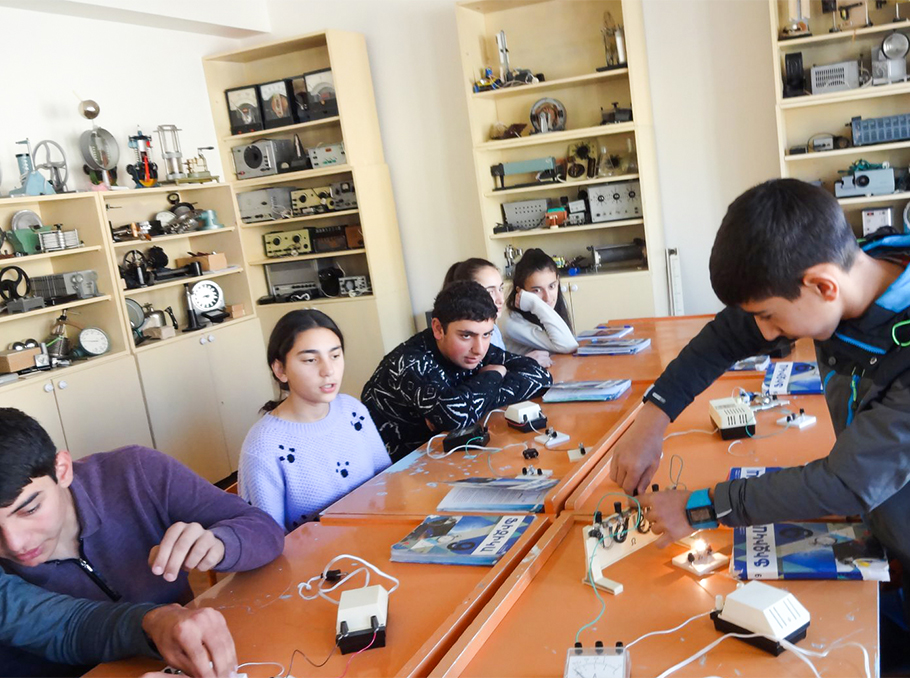
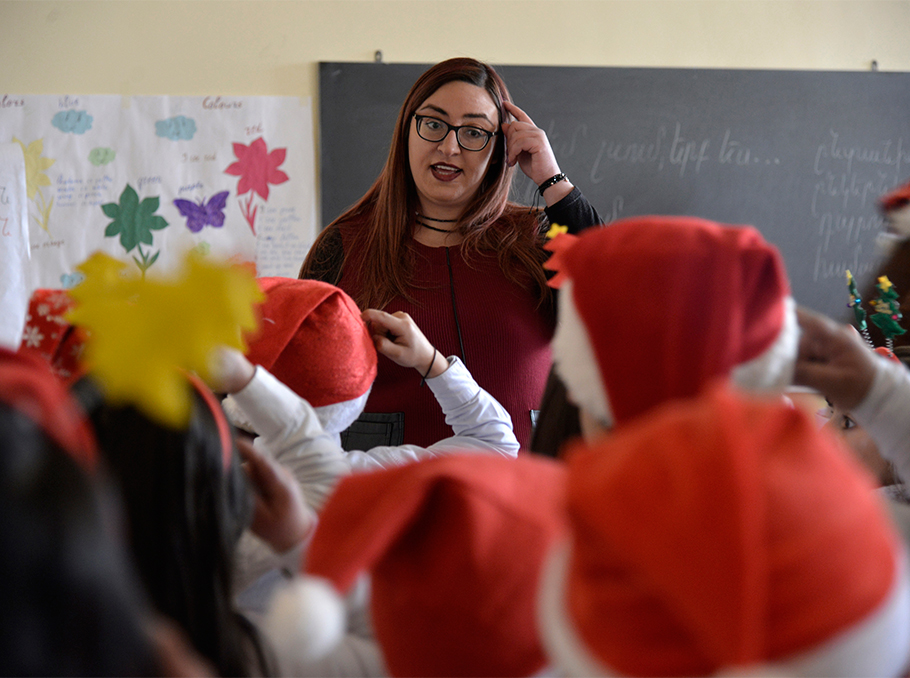
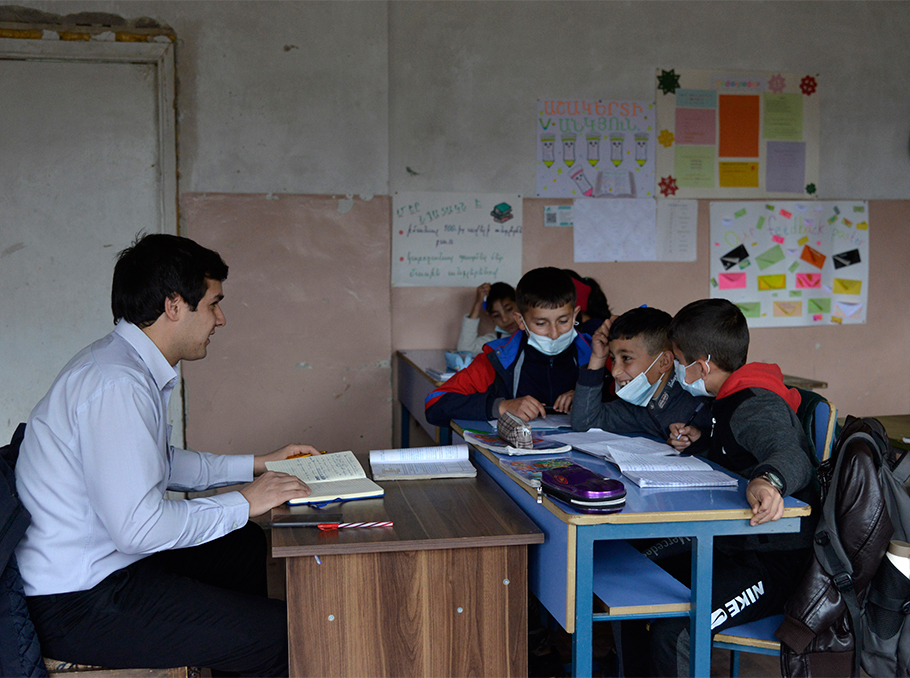
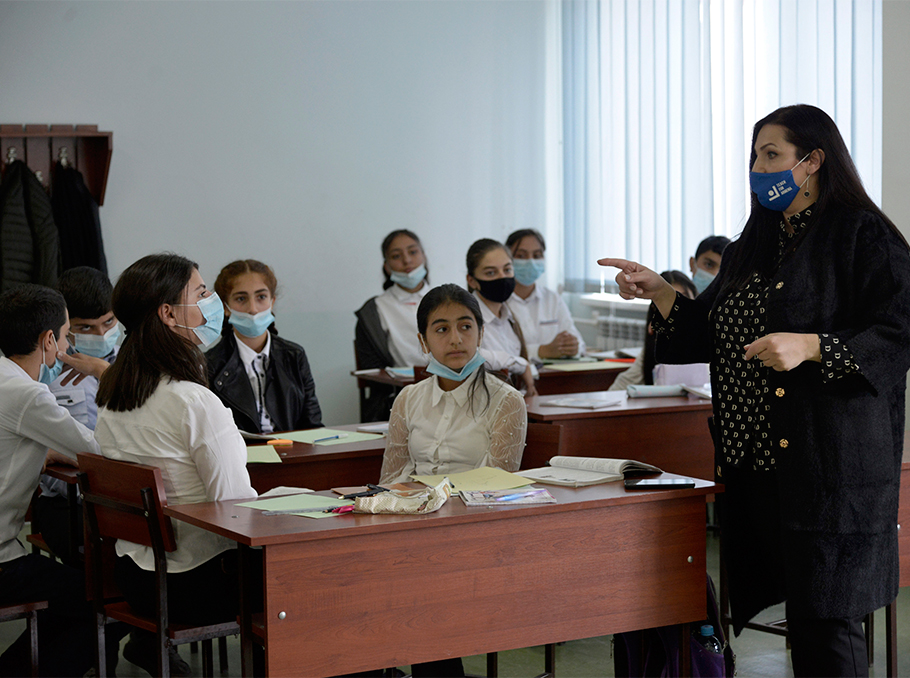
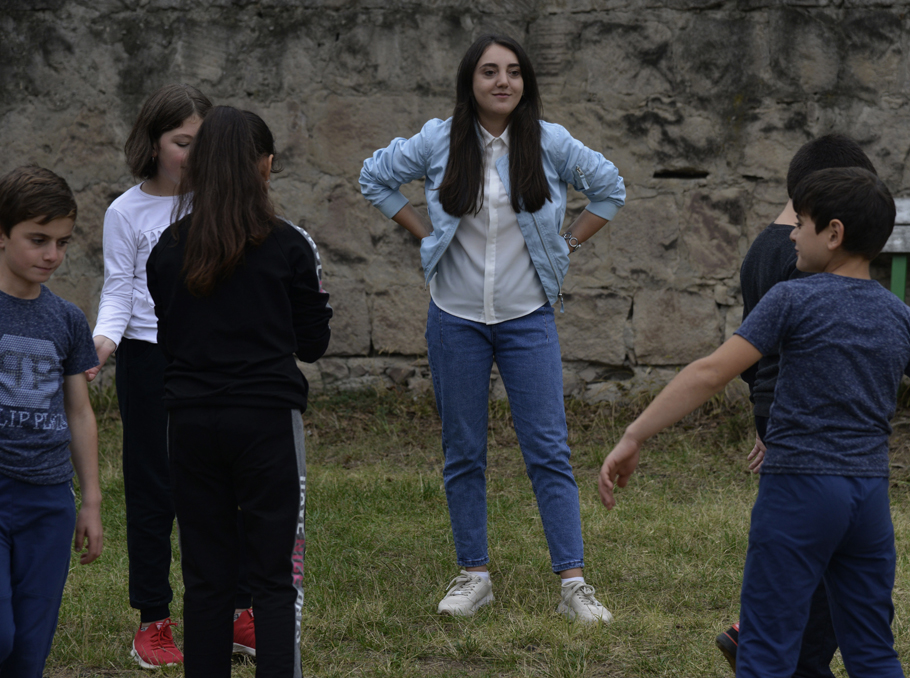






Comments
Dear visitors, You can place your opinion on the material using your Facebook account. Please, be polite and follow our simple rules: you are not allowed to make off - topic comments, place advertisements, use abusive and filthy language. The editorial staff reserves the right to moderate and delete comments in case of breach of the rules.